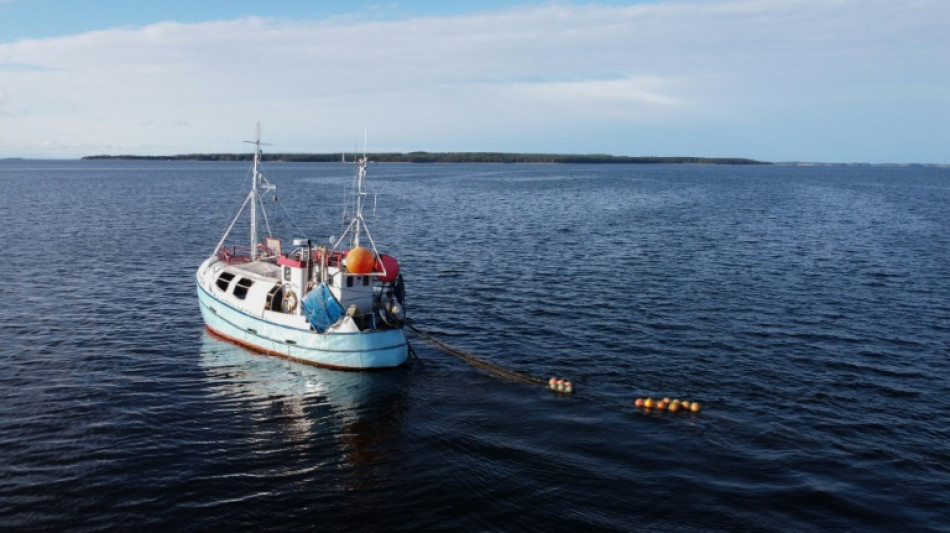
-
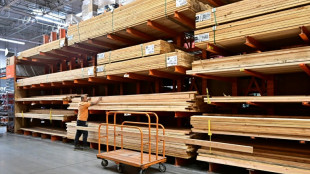 US tariffs on lumber imports set for October 14
US tariffs on lumber imports set for October 14
-
Australia lose Maxwell for New Zealand T20s after freak net blow

-
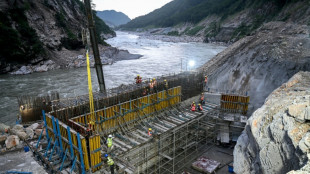 India plans mega-dam to counter China water fears
India plans mega-dam to counter China water fears
-
Colombia manufactures its first rifles to replace Israeli weapons

-
 Stocks rise, gold hits record as rate cuts and shutdown loom
Stocks rise, gold hits record as rate cuts and shutdown loom
-
Dolphins star Hill suffers gruesome injury in Jets clash

-
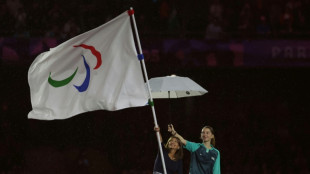 Paralympics' vote to lift Russian suspension 'bold step' as conflict rages: ex-IOC executive
Paralympics' vote to lift Russian suspension 'bold step' as conflict rages: ex-IOC executive
-
Gazans say Trump's peace plan a 'farce'
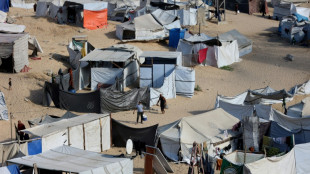
-
 UN Security Council to vote on future of foreign Haiti force
UN Security Council to vote on future of foreign Haiti force
-
Far-right German MP's ex-aide faces verdict in China spy case

-
 YouTube to pay $22 million in settlement with Trump
YouTube to pay $22 million in settlement with Trump
-
Internet outrage over Trump's AI conspiracy video
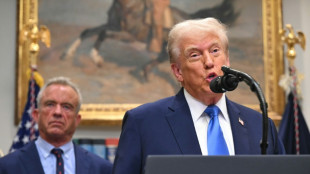
-
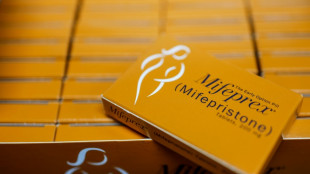 Coalition of states vows to protect access to abortion pill under Trump review
Coalition of states vows to protect access to abortion pill under Trump review
-
Trump meets Democrats without breakthrough on imminent shutdown

-
 Muslim states join EU powers in backing Trump Gaza plan
Muslim states join EU powers in backing Trump Gaza plan
-
California enacts AI safety law targeting tech giants
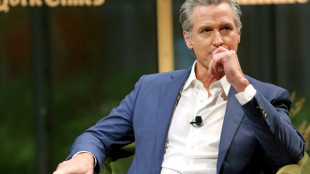
-
 Creator says AI actress is 'piece of art' after backlash
Creator says AI actress is 'piece of art' after backlash
-
Nuno makes his point as West Ham rescue Everton draw

-
 Slot challenges Liverpool players to 'give their all' against Galatasaray
Slot challenges Liverpool players to 'give their all' against Galatasaray
-
Dodgers eye rare repeat as MLB playoffs get under way

-
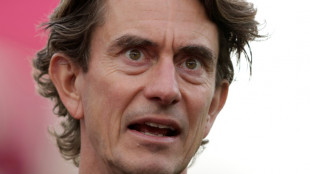 Solanke surgery leaves Spurs struggling for strikers
Solanke surgery leaves Spurs struggling for strikers
-
Trump's Gaza peace plan wins Netanyahu backing

-
 New-look Paris Fashion Week kicks off with Saint Laurent
New-look Paris Fashion Week kicks off with Saint Laurent
-
Anthropic launches new AI model, touting coding supremacy
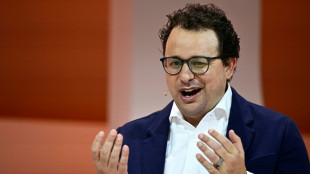
-
 Trump announces Gaza peace plan, with Netanyahu backing
Trump announces Gaza peace plan, with Netanyahu backing
-
'Better, stronger' Wembanyama can't wait for NBA return

-
 LeBron relishing 23rd season as retirement draws near
LeBron relishing 23rd season as retirement draws near
-
'Always a blue': Mourinho expects Chelsea fans to show respect

-
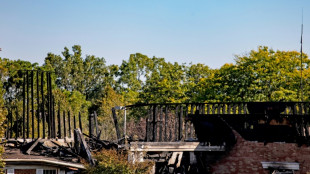 Michigan governor asks to 'lower the temperature' after church attack
Michigan governor asks to 'lower the temperature' after church attack
-
S. Africa lose World Cup qualifying points over ineligible player

-
 Rugby chiefs open to R360 role in women's game after World Cup success
Rugby chiefs open to R360 role in women's game after World Cup success
-
Inter Milan announce 35.4 million euro profits ahead of San Siro vote

-
 Madagascar protests reignite, UN says at least 22 dead
Madagascar protests reignite, UN says at least 22 dead
-
Taliban shut down communications across Afghanistan
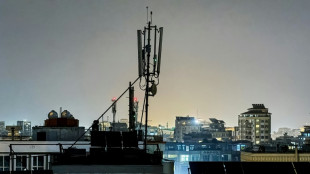
-
 Serbia arrests 11 accused of stirring Jewish-Muslim hate in France, Germany
Serbia arrests 11 accused of stirring Jewish-Muslim hate in France, Germany
-
J.K. Rowling attacks 'ignorant' Harry Potter star Emma Watson

-
 Electronic Arts to be bought by Saudi-led consortium for $55 bn
Electronic Arts to be bought by Saudi-led consortium for $55 bn
-
N.Korea vows at UN never to give up nuclear
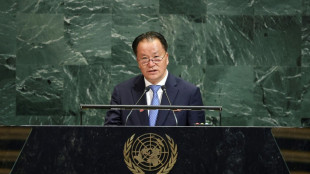
-
 Hamilton reveals 'hardest decision' over dog's death
Hamilton reveals 'hardest decision' over dog's death
-
Springsteen denounces 'hatred' in America at biopic premiere
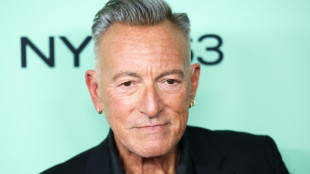
-
 Stock markets shrug off US government shutdown fears
Stock markets shrug off US government shutdown fears
-
UK's Labour plans tougher rules on migrants to halt hard right
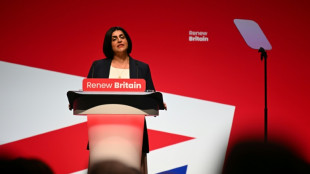
-
 Trump 'very confident' of Gaza deal as he hosts Netanyahu
Trump 'very confident' of Gaza deal as he hosts Netanyahu
-
'High chance' of India winning Women's Cricket World Cup: captain Kaur
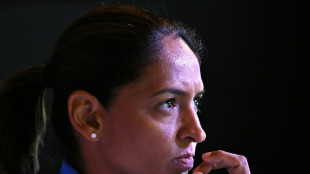
-
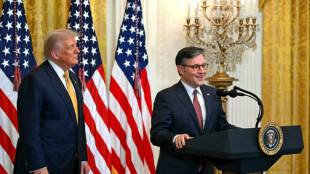 Trump meets Democrats in last-gasp talks before US government shutdown
Trump meets Democrats in last-gasp talks before US government shutdown
-
No 'Angels': Bulgarians shake down Robbie Williams convoy
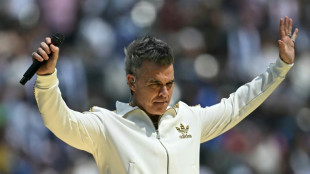
-
 German music body sues OpenAI alleging copyright breaches
German music body sues OpenAI alleging copyright breaches
-
Cannabis extract relieves chronic back pain: high-quality trial
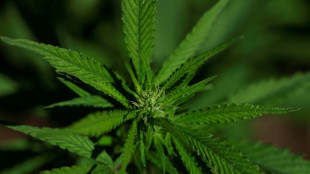
-
 African players in Europe: Sarr helps sink leaders Liverpool
African players in Europe: Sarr helps sink leaders Liverpool
-
Madagascar protests reignite as police launch tear gas


Ailing Baltic Sea in need of urgent attention
Decades of pollution and climate change have caused fish to disappear from the Baltic Sea at an alarming rate, with the European Union on Thursday vowing to make the sea an "urgent priority".
Unveiling its road map to protect Europe's seas, the European Ocean Pact, Brussels announced a summit on the state of the Baltic Sea in late September.
The semi-enclosed sea is surrounded by industrial and agricultural nations Germany, Poland, Russia, Finland, Sweden, Denmark and the three Baltic states.
Connected to the Atlantic only by the narrow waters of the Danish straits, the Baltic is known for its shallow, low-salinity waters, which are highly sensitive to the climate and environmental changes that have accumulated over the years.
"Today, the once massive Baltic cod stocks have collapsed, herring stocks in several sub-basins are balancing on critical levels, sprat recruitment is at a record low and wild salmon stocks are in decline," Swedish European MP Isabella Lovin, rapporteur for the EU Committee of Fishing, warned in a report, calling the situation "critical".
- Dead marine zones and climate change -
The Baltic Sea is home to some of the world's largest dead marine zones, mainly due to excess nutrient runoff into the sea from human activities on land -- a challenge the sea has long grappled with.
The runoff has primarily been phosphorus and nitrogen from waste water and fertilisers used in agriculture, as well as other activities such as forestry.
It causes vast algae blooms in summer, a process known as eutrophication that removes oxygen from the water, leaving behind dead seabeds and marine habitats and threatening species living in the Baltic.
Today, agriculture is the biggest source of nutrient pollution.
Marine biodiversity in the relatively small sea has also deteriorated due to pollution from hazardous substances, land use, extraction of resources and climate change, according to the Baltic Marine Environment Protection Commission (HELCOM).
"The state of the Baltic Sea is not good," Maria Laamanen, a senior advisor at the Finnish environment ministry, told AFP.
Climate change poses "a massive additional challenge" for the marine environment, she said.
Of the world's coastal seas, the Baltic Sea is warming the fastest.
A 2024 study said sea surface and sea floor temperatures have increased by 1.8 and 1.3 degrees Celsius respectively in the Finnish archipelago in the northern Baltic Sea, in the period from 1927 to 2020.
The consequences of rising temperatures already affect species, while increased rainfall has led to more runoff from land to sea.
Better waste water treatment and gypsum treatment of agricultural soil, as well as an expansion of protected marine areas in Finland, have had a positive effect on the maritime environment, according to Laamanen, who said environmental engagement had grown in recent years.
"The situation would be much worse without the measures already implemented," she said.
- Fisheries -
In her report, Lovin called for an ambitious reform of fisheries, with stronger attention paid to environmental and climate change impacts.
The report also questioned whether the Baltic could continue to sustain industrial-scale trawling, and suggested giving "priority access to low-impact fisheries and fishing for human consumption".
The head of the Finnish Fishermen's Association (SAKL) Kim Jordas said eutrophication was to blame for the declining fish stocks in the Baltic Sea, not overfishing.
"Looking at cod for example, it is entirely due to the state of the Baltic Sea and the poor oxygen situation," Jordas told AFP.
In Finland, the number of commercial fishermen has been declining, with a total of around 400 active today.
T.Egger--VB
